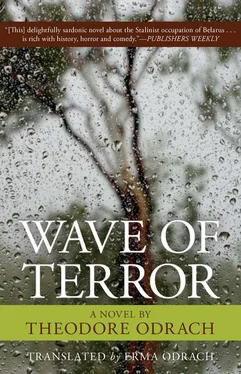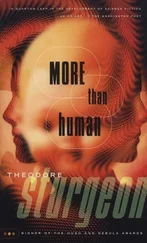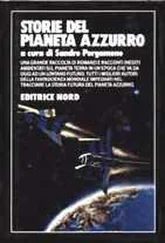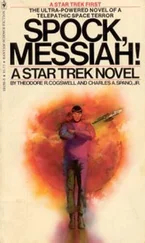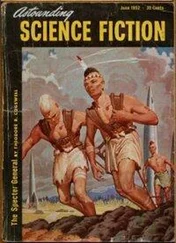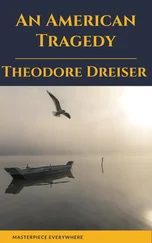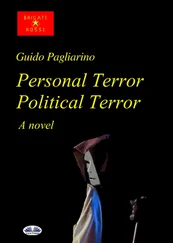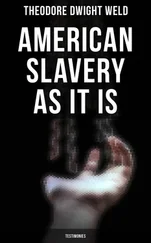Sobakin, who had been following the conversation with marked interest, let out a loud, abrupt laugh. He found Nikolai Kopitkin’s writing a waste of time in general, and inessential to the common cause. True, Nikolai was trying to better himself by Russifying his name, and was even perhaps succeeding on the surface, but still, at heart he was a moujik , and all the name-changing in the world would never fix that. Slapping Nikolai on the back, he decided to have a little fun with him.
“Nikolai, have you ever written about frogs? They’re here in your primordial mudlands by the thousands. Surely their mere number ought to have brought you inspiration. And not to worry, if your poem doesn’t work out, our new Soviet Union has plenty of good editors. They could iron things out for you in a flash. Hah, hah, hah!”
Nikolai’s mouth twitched with irritation and he could feel the tips of his ears burning. Sobakin had gone too far with his insults and he resolved to put a stop to it. He said haughtily, “First and foremost I am a poet, and, I might add, not just an ordinary poet, but a Soviet poet. I write for the betterment of socialism and society. If our regime requires that I relate some kind of allegorical message involving birds, or even frogs for that matter, then, of course, I will put my pen to work. Poetry is the nation’s guide and conscience. It depicts the basis of revolution.”
Sobakin, still laughing, punched Nikolai playfully on the arm. “What an old card you are! If only we had more of your kind around. We’d take the world by storm!”
Nikolai Kopitkin seethed with anger and resentment. In an attempt to save face before the Bohdanoviches, he decided to laugh off this humiliation, to treat it like some big joke. But looking at Efrosinia, then at Valentyn, then at the girl, he was dismayed to find them shifting awkwardly, straining to contain their embarrassment. He thought they were probably thinking to themselves, Poor Nikolai Kopitkin has just been mowed to the ground, and so mercilessly or Poor Nikolai Kopitkin, the renowned Pinsk poet, is so misunderstood.
Marusia felt that Sobakin had demonstrated a cold cruelty she would not have wished upon her worst enemy. She felt sympathy for Nikolai, even to the point of defending him in some way, but then she recalled the way he had acted at the New Year’s Evedance. During their brief encounter, Marusia had addressed her cousin Sergei in the familiar, Seryoza, thereby demonstrating that she was directly and closely associated with him, a moujik . On top of that, Nikolai had arrogantly and rudely snubbed her and walked away, leaving her standing there. There was absolutely no reason for her to show any sympathy for him now. Instead she decided that Nikolai Kopitkin was a self-serving, irresolute louse who got what he deserved.
And as for Simon Stepanovich, he seemed to derive pleasure from his own cruelty. There was something unpleasant and revolting about his face, and the airs he assumed made her wince. Quickly she concluded that he would make a dangerous liaison and she should stay as far away from him as possible. She felt afraid of him. But at the same time something was pulling her toward him, something she didn’t understand. She felt oddly restless, finding it difficult to repress an emotion building inside her. Could she possibly be feeling physically drawn to this crude and offensive NKVD man, old enough to be her father, and who reported daily to the Zovty Prison? The thought made her shudder.
However, she found herself no longer thinking of him as an agent of the Kremlin carrying out unthinkable deeds, but simply as an official, respected, a dignitary. She tried to untangle her feelings toward him, but the more she tried, the more confused she became. His harshness and brutality were becoming attractive to her; even his uniform was arousing in her a passion she was finding difficult to understand. Could it be she was ready to embrace the devil himself?
Valentyn, picking up his glass, called out, “Another round for our guests! Marusia, pour more drinks.”
Marusia quickly filled up the glasses, including her own, and sat down in an armchair opposite the NKVD man, who settled on the sofa next to Nikolai Kopitkin. Her cheeks were flushed. The drink had gone rapidly to her head. Sobakin kept staring at her. She was slender, pleasing to look at, so innocent and spontaneous, and her movements so supple. She was everything he had heard about provincial girls from distant republics, and he wanted her all to himself. And though her face was fresh and youthful, and her flesh almost like silk, there was something very grown-up about her. With each passing moment he became more and more enthralled by her beauty. Everything about her fired him up. And the more Marusia sipped her drink, the more exuberant she became.
Giddily, perhaps even unconsciously, she became flirtatious, unexpectedly displaying a new sensuality. She smiled, laughed and tossed her head. Sobakin grew wild with excitement. He fixed his attention on her swelling breasts. The power of her own femininity intoxicated her. And hers was a femininity like no other, capable of capturing the heart even of a cold and hardened NKVD man. She found the prospect thrilling.
The guests stayed late into the night, and at last some time around midnight they bade their farewells. After locking up the house, Valentyn and Efrosinia retired, but Marusia lingered in the living room, trying to sort out all that had happened. She couldn’t get Sobakin’s face out of her mind. It was round and puggish, pockmarked, in many ways unattractive, even ugly. His slanted eyes were stony and lecherous. His loud voice, his big, rough hands, just the mere thought of him made her shudder. He had an animal presence and she felt as if she were being slowly consumed by him, eaten alive.
Nevertheless, there was something intriguing and captivating about Sobakin; an unknown force seemed to be drawing her toward him. He was a Russian officer, influential, a man of consequence. Never in her wildest imagination had she ever dreamt she would meet a man like that. She was flattered by the attention he paid her. He was not only an important government agent, but a man of honor, a man of his word. After all, he had promised to bring Lonia home, and she truly believed he would do just that. With this comforting thought in mind, she went to bed, and fell into a sound sleep.
The next day, some time in the early afternoon, there was a knock on the front door. Marusia, racing out from the kitchen where she was helping her mother prepare lunch, opened the door to a small blond boy, not more than ten years old. He shoved a largish paper-wrapped parcel at her, and took off down the street. There was a card affixed to the parcel: For the charming and effervescent Marusia, with best regards, Simon Stepanovich . She ripped off the wrapping and gasped in disbelief. It was a shiny black coat, softer than anything she had ever seen — it was a Persian lamb! She had never seen anything so beautiful. She had always dreamed of owning such an exquisite coat, but it was always just that, a dream. And now as if by a miracle she owned one. She saw herself as the luckiest girl in the world.
With great care she took the coat out of the box, and half closing her eyes, brushed it tenderly across her face, delighting in its velvety softness. Then something cold and stiff scratched against her cheek. Sewed just below the collar was a label in large italic letters: Kranza . A chill ran down her spine. Yuri Kranza had been a well-known Pinsk furrier. Just last Christmas he and his family had disappeared; his shop was now empty and boarded up. It was rumored that they had been shipped off to a camp somewhere in Siberia. The coat slipped out of her hands and fell to the floor. She hated the coat now, and she hated Simon Stepanovich even more. Her thoughts went in circles, and kept returning to the label: Kranza . She kicked the coat away from her; she wanted to destroy it, to rip it to pieces.
Читать дальше
